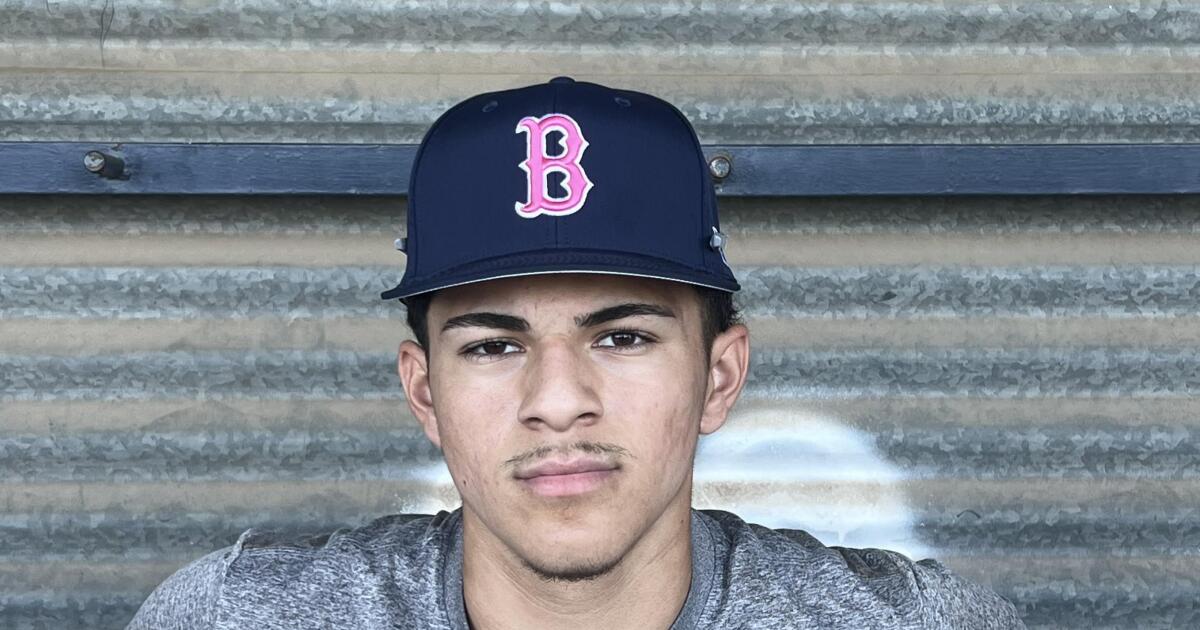Prep baseball roundup: Aidan Martinez returns from Tommy John surgery for Birmingham
Two years after Tommy John surgery on his right elbow, Aidan Martinez returned to the mound for Birmingham High on Monday in the closer’s role and responded with three strikeouts and three walks and no hits in 1 1/3 innings in the Patriots’ 7-4 win over Ventura in the Easton tournament.
It’s another positive development for a Birmingham team that already has two productive starters in sophomores Carlos Acuna and Nate Solis. Freshman Ivan Rivera started on the mound for Birmingahm against Ventura.
“He’s getting better every day,” coach Matt Mowry said of Martinez. “He looked good. He was just a little rusty. He has a good arm and is going to help us out.”
There was a brief delay before the game when Ventura High went on lockdown when a police chase of a possible stolen vehicle ended outside of the school, with suspects getting out and running into the school before being captured.
Villa Park 12, Downey 3: Aiden Young had an RBI double and Gunner Santillo had three hits for Villa Park.
Bishop Alemany 1, Culver City 0: DC Ravago threw a one-hit shutout with seven strikeouts for 3-0 Alemany, which hosts Oaks Christian in the Easton tournament semifinals Wednesday.
Calabasas 5, Rio Mesa 4: Connor Kingston got out of a bases loaded situation in the seventh to pick up the save for Calabasas, which faces host St. Francis on Wednesday in the Easton tournament semifinals. Evan Barak had two hits and two RBIs.
Cleveland 6, Camarillo 4: Josh Pearlstein had two hits and two RBIs for Cleveland.
Agoura 4, Mira Costa 3: Tyler Starling contributed two hits for the Chargers.
Valencia 2, Oxnard Pacifica 1: Dexton Otton threw four scoreless innings for the Vikings.
Dos Pueblos 9, Granada Hills 3: Liam Shea gave up one hit and no runs in five innings for Dos Pueblos, which had a six-run second inning.
Simi Valley 6, Highland 4: Andrew Nicklaus had two doubles and three RBIs for Simi Valley.
North Hollywood 7, Taft 6: Despite scoring five runs in the seventh, Taft couldn’t come back from a 7-1 deficit.
Westlake 9, Chatsworth 1: Holden Backus finished with three hits and three RBIs for Westlake.
Arcadia 6, San Dimas 2: Peter Cuoco struck out eight in five innings and Damian Catano had two RBIs for the Apaches.
Thousand Oaks 11, Saugus 5: Dylan Sax had two hits and three RBIs for the Lancers.
